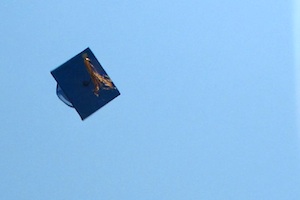National Coalition Against Censorship criticizes academic boycotts, but warns public officials against interference with political expression and open discussion and debate.
The National Coalition Against Censorship (NCAC) issued a statement on Wednesday in opposition to state legislative proposals (A.8392a and S.6438) that would "penalize professional associations and their members for engaging in protected political activity," according to NCAC Executive Director Joan Bertin. The statement was sent to the legislation's co-sponsors, including Assembly Speaker Sheldon Silver and Senate Co-Leader Jeffrey D. Klein, the primary sponsors.
NCAC calls the bills "constitutionally flawed" and "ill-conceived." They were proposed in response to a recent decision by the American Studies Association (ASA) and other private professional associations endorsing a limited boycott of Israeli universities to protest certain policies of the Israeli government. The legislation was introduced in January.
Citing precedents set by numerous Supreme Court decisions, the statement points out that "state universities are free to allocate funds for research and travel based on academic merit, [but] they are not free to pick and choose which activities to support based on the political views or positions of sponsoring organizations." The Court held in Rosenberger v. University of Virginia that when state universities support "private speakers who convey their own messages," they may not "silence the expression of selected viewpoints."
The proposals also run afoul of Supreme Court law rejecting even "subtle governmental interference" with protected political speech and activities, including the denial of funding or recognition to groups or individuals espousing unpopular political opinions.
Like the American Association of University Professors (AAUP), NCAC is critical of academic boycotts because, unlike economic boycotts, they "strike directly at the free exchange of ideas".
But "two wrongs do not make a right," said Bertin. Regardless of how one views academic boycotts by private professional organizations, "faculty at state-supported colleges and universities have a constitutionally protected right to express unpopular political views, to associate with like-minded individuals, and to engage in collective political activities."
The full letter appears below; click here for a full-screen view.


